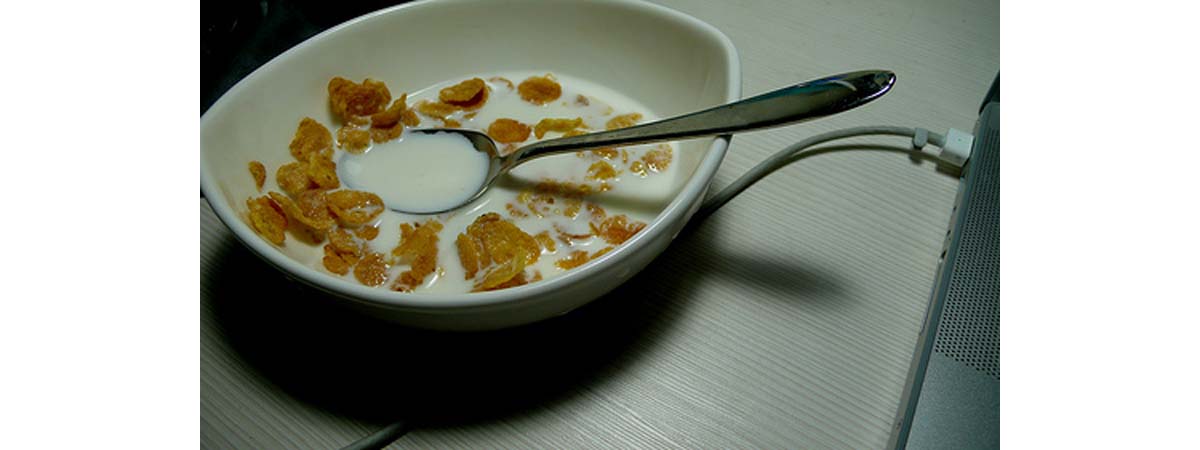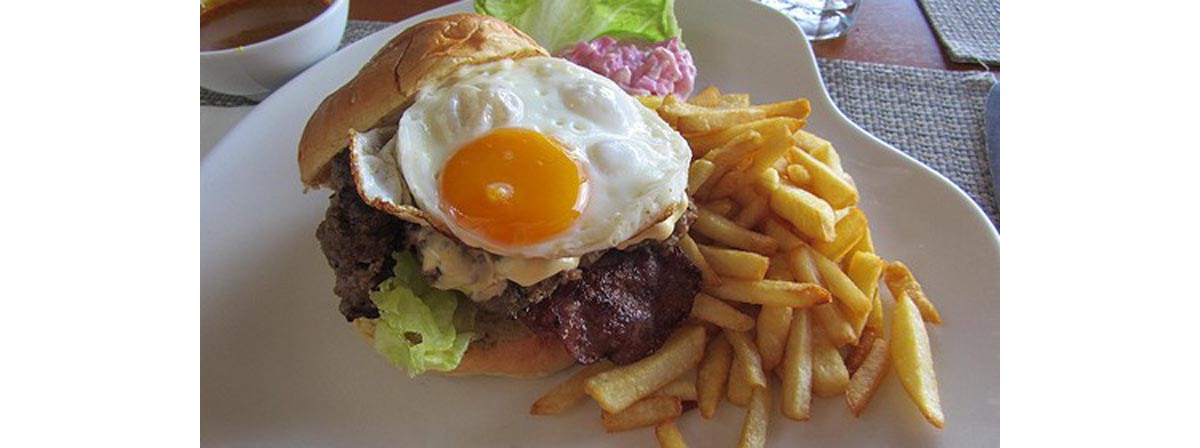Americans have been getting lectured about fiber at least since the time of John Harvey Kellogg (1852-1943), the founder of the American Missionary Medical College. Yes, he was also the inventor of corn flakes, popularized by the famous cereal company that bears his name.

A devout Christian, Kellogg believed that sex was bad, and that masturbation was especially evil. Kellogg encouraged the "treatment" of masturbation in teen-aged boys. Circumcision, performed without anesthetic, was the proposed option. To discourage masturbation in teen-aged girls and young men, he advocated the removal of the clitoris with carbolic acid.
And Kellogg persuaded millions of like-minded religious people that sexual addiction, especially nymphomania (which for Kellogg, could have been any interest in sex at all), was caused by constipation, the stool in the rectum constantly stimulating the prostate in men and the vagina in women, and the cure for constipation was fiber. As a result, the Kellogg company of his era, although not the Kellogg company of the twenty-first century, created fiber-rich cereals for the abolition of lust in American society.
It didn't work.
However, a number of myths about fiber persist as a direct result of Kellog's crusade against sex. Here are five of the factually least accurate.
1. Fiber-rich foods improve digestion by slowing down the digestive process.
The reality is, sometimes it is a good thing to slow down the digestive process. If you are a diabetic, and you want to limit the amount of "fast" insulin you have to take with meals, eating small amounts of fiber-rich foods can help you keep your blood sugar levels under better control. Large amounts of fiber, unfortunately, can aggravate a common form of diabetic nerve damage known as gastroparesis, in which food tends to "sit" in the stomach, leading to all sorts of problems.
For everybody else, however, too much fiber can slow down the digestive process so much that stomach acids can reflux up into the stomach. The insoluble fiber in whole wheat, in particular, can aggravate heartburn, belching, hiccups, and gas. If these ailments plague you often, too much fiber might be the cause.
2. Fiber keeps your body from absorbing sugar.
The small intestine is extremely efficient at absorbing sugars in foods or digested from foods. It only takes an hour (or maybe a few minutes more or less) for the sugar in, say, a bowl of ice cream, to reach your bloodstream. Eating an apple or a fiber bar creates a mass in the small intestine that holds digested sugars so they don't reach the bloodstream quite as quickly. Fiber might delay the arrival of sugars into your bloodstream for 90 minutes to 2 hours.
However, the sugar in the food you eat still gets into your bloodstream sooner or later. And because the bacteria in your colon can digest fiber and share some of its sugars with the cells of the colon, you can actually get as much sugar from fiber, surprisingly enough, as from ice cream. It just takes about 24 hours for that sugar to reach you, rather than 1 to 2.
3. Fiber speeds the passage of food through the digestive tract, protecting it from cancer-causing chemicals.
Wait a minute — isn't one of the common claims about fiber that it slows down the digestive process? It can't both slow down digestion and speed it up, can it?
No, it can't. Actually, it's fat that speeds up the passage of food through the digestive tract, not carbohydrates, protein, or fiber.
4. Fiber prevents cancers of the digestive tract.
Actually, there are cancer-protective benefits to eating the amount of fiber found in the commonly recommended "five a day," five servings of fruits and vegetables per day. Eating small amounts of fiber, especially the fructooligosaccharides, complex carbohydrates found in Jerusalem artichokes, asparagus, bananas, and berries, feeds friendly bacteria, which in turn release a protective compound called butyric acid (also found in butter). But eating larger amounts of fiber has never been found to protect against colon cancer, and is actually associated with higher rates of stomach cancer.
5. Well, at least fiber protects women against breast cancer by "capturing" excessive estrogen.
This common statement might have persuaded you to eat more fiber, especially if you are at a higher risk of breast cancer. Sorry, this isn't what the research shows. A study of 334, 819 women in Europe found no protective role for dietary fiber in either estrogen-receptor positive or progesterone-receptor positive breast cancers.
Five More Fibs About Fiber
Well, if fiber doesn't protect against cancer, it at least protects against heart disease, right?

6. Fiber lowers cholesterol levels and prevents heart disease.
One clinical trial put volunteers on a low-fat diet coupled with the use of a dietary supplement containing corn bran, pea fiber, guar gum, pectin, and soy fiber. At the end of a 105-day trial, the researchers found that LDL ("bad") cholesterol levels had dropped about 8 percent.
But that's not necessarily a good thing.
And whether it's the fiber that is causing the lowering of cholesterol or the other components of your diet is an open question. When you cut back on either fat in your diet or excess calories in your diet, your liver makes fewer bile salts. And the way fiber would lower your cholesterol levels is by capturing bile salts, which are made from cholesterol, so they are flushed down the toilet. But if your liver isn't making the bile salts, fiber isn't capturing them. It's the reduction of fat and calories that make the difference, not the fiber.
7. Fiber fills you up.
Fiber absorbs water. Wet fiber fills your stomach, so you don't get hungry as fast. However, eating fiber on a regular basis expands your stomach, so that when you don't eat fiber, you want more of other foods, like Cheetos, Twinkies, cheeseburgers, and bacon. The benefits of fiber are temporary, but the side effects of fiber are permanent.
8. Fiber prevents gallstones.
Gallstones form when bile salts can't pass of the liver through the bile duct into the gallbladder and on to the gut. When the bile can't flow, crystals of cholesterol and minerals accumulate into painful stones. But what would keep bile from its natural flow into the intestines? Fiber, of course. Too much fiber in the stool keeps the bile from flowing and causes crystals to form.
9. Fiber prevents diarrhea.
Fiber absorbs water, the reasoning goes, and diarrhea is caused by too much water in the contents of the colon, so fiber would slow down the passage of fecal matter and prevent diarrhea. And small amounts of fiber sometimes do exactly this — but that's not necessarily a good thing. Diarrhea is your body's way of getting rid of a toxin, a parasite, or an infection. Stopping diarrhea can prolong an illness.
And soluble fiber, which shows up in foods in which one would not expect it, can actually cause diarrhea, since soluble fiber "slips" through the colon quickly. Disguised as agar, algae, alginates, beta-glucan, cellulose gums, carrageen, fructooligosaccharides (FOS), guar gum, guaran, hemicellulose, Irish moss, Irish algae, kelp, lignins, mucilage, pectin, oligofructose, polydextrose, polylos, resistant starch, resistant dextrin, and kelp extracts, soluble fiber is found in yogurt, ice cream, cream cheese, canned food, jellies, jams, frozen dinners, sour cream, non-dairy creamers, frozen dinners, and prepared foods served in restaurant chains, any time a food needs to be "creamier" without cream. Eating the soluble fiber hidden in these foods can actually cause diarrhea.
10. Eating 9 or 10 pieces of fruit a day will keep you regular.
It's undoubtedly true that eating 9 or 10 pieces of fruit will increase your daily trips to the bathroom (unless you happen to eat an extremely high-fiber fruit like persimmons, which can cause the formation of a bezoar, the human equivalent of a hairball, which can cause severe constipation).
However, not all the sugars found in certain kinds of fruit, especially apples and pears, are completely digestible by human digestive enzymes, so they become food for fermentative bacteria. These bacteria release gas in between your trips to the toilet.
Everything about fiber isn't bad. Everybody needs some fiber every day. Specifically, men need around 30 to 38 grams of fiber a day, while women should go for 21 to 25 grams. But eating massive amounts of plant foods just for the fiber isn't healthy. Five to nine servings of plant foods every day really is enough.
- Ferrari P, Rinaldi S, Jenab M, Lukanova A, Olsen A, Tjønneland A, Overvad K, Clavel-Chapelon F, Fagherazzi G, Touillaud M, Kaaks R, von Rüsten A, Boeing H, Trichopoulou A, Lagiou P, Benetou V, Grioni S, Panico S, Masala G, Tumino R, Polidoro S, Bakker MF, van Gils CH, Ros MM, Bueno-de-Mesquita HB, Krum-Hansen S, Engeset D, Skeie G, Pilar A, Sánchez MJ, Buckland G, Ardanaz E, Chirlaque D, Rodriguez L, Travis R, Key T, Khaw KT, Wareham NJ, Sund M, Lenner P, Slimani N, Norat T, Aune D, Riboli E, Romieu I. Dietary fiber intake and risk of hormonal receptor-defined breast cancer in the European Prospective Investigation into Cancer and Nutrition study. Am J Clin Nutr. 2013 Feb. 97(2):344-53. doi: 0.3945/ajcn.112.034025. Epub 2012 Dec 26. PMID: 23269820.
- Monastyrsky, K. Fiber Menace. Ageless Press, 2011.
- Photo courtesy of XIAOHEI BLACK by Flickr : www.flickr.com/photos/kuroha/2410216223/
- Photo courtesy of thienzieyung by Flickr : www.flickr.com/photos/thienzieyung/7194550166/

